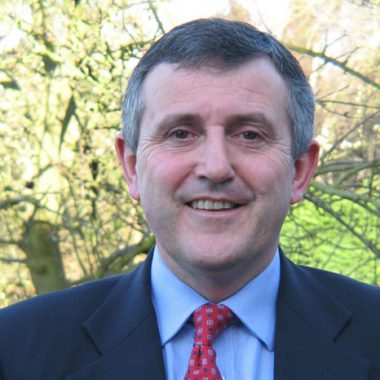Revealed: GPs now in a majority on less than a third of CCG boards

Exclusive GP representation on CCG boards has substantially decreased since commissioning groups were in shadow form, with GPs now making up the majority of board members at just 29% of CCGs, new figures exclusively obtained by Pulse reveal.
The data, collected by the TUC-funded campaign group False Economy, is the most comprehensive analysis to date of the make-up of fully-fledged CCG boards. It reveals that GPs constitute some 43% of all board members – down from 49% in 2012 – and that the proportion of boards where GPs are in the majority has almost halved over the same period, from 56% to 29%.
Andrew Lansley, the health secretary who introduced the Health and Social Care Act, told GPs the original purpose of the reforms was to ‘give you and your colleagues in general practice the responsibility to shape services’.
But GP leaders have said that these latest figures support the growing feeling that CCGs are ‘more like PCTs, with strong managerial diktats’, at the same time as one of the country’s most senior GP commissioner leaders told Pulse that ‘centralism’ is threatening to ‘destroy’ primary care.
Researchers from False Economy began looking in December at the constitution of all 212 CCG boards, based on information on their websites, which CCGs must display. They recorded whether each board member was a GP, hospital doctor, manager, nurse, lay member, public health doctor or a pharmacist, and also counted members of the voluntary sector, local authorities and Healthwatch.
The researchers found that 1,343 of the total 3,120 CCG board members were GPs, and that GPs were in the majority of just 61 boards. After GPs, NHS managers – non-clinical CCG staff – were the next most widely represented group, making up 21% of board members. Nurses made up 7% of board members, and hospital doctors 6%.
NHS South Tyneside CCG was one of those to report that GPs were in a minority – it has only two GPs on a board of 12 members.
Dr Matthew Walmsley, chair of NHS South Tyneside CCG, said: ‘The GPs in our organisation are in positions where they can lead major change in South Tyneside. We built our constitution carefully to enable them to do that from outside our governing body. I believe that for a small CCG, our financial stability and increasing national recognition as innovators are indicators of the success of that approach.’
The findings represent a significant decrease in GP representation since a Pulse investigation in 2012 when CCGs were in shadow form. That investigation found GPs were in a majority on 56% of boards and made up 49% of board members overall.
A subsequent Pulse investigation in September 2013 found the proportion of board members had fallen to 43% but did not look at the number of boards where GPs were the majority.
Related stories
Back in 2012, GPC chair Dr Chaand Nagpaul – at that time a negotiator – said ‘we need to learn the lessons’ of PCT boards and ‘ensure the GP presence isn’t being diluted’.
This week LMC leaders responded with concern to the latest figures showing GP representation has decreased.
Dr Paul Roblin, chief executive of Berkshire, Buckinghamshire & Oxfordshire LMCs, said GPs were feeling increasingly less involved in the work of CCGs.
He said: ‘Month by month, CCGs feel less like bottom-up organisations and are becoming more like the old PCTs with strong managerial diktats.’
Dr John Canning, secretary of Cleveland LMC, said: ‘Many of the GPs I speak to are quite disillusioned by the CCGs’ agenda. We have not learnt the lessons from history… most GPs want to spend their time seeing patients.’
‘The part-time GPs at the top of CCGs seem swamped by the workload. Personally I don’t think commissioning is going very well.’
These figures come as Dr Michael Dixon, interim president of NHS Clinical Commissioners, told Pulse that there was a real risk NHS England’s heavy-handed approach to managing GP practices and the continued underfunding of the profession could undermine GPs’ will to take part in commissioning.
He said: ‘NHS England is not getting it, because it is not sufficiently connected with the hind brain, if you like, of your average GP or nurse. The vested interests of centralism and secondary care are the two things that threaten to destroy all we are trying to do with primary care commissioning.’
He added that the commissioning environment was ‘in danger of getting worse’ than under PCTs. He said: ‘All we have seen in the first year of NHS England commissioning is them paying the bills – or sometimes not paying the bills. What we have not seen is inventive commissioning.’
A spokesperson for NHS England said: ‘The role of CCG governing bodies is set out in legislation. There are no rules about a CCG having a majority of GPs on governing bodies, however, as clinically-led commissioning organisations, NHS England has required each CCG to appoint a clinical leader who is the individual recognised by the CCG as the leading clinician who represents the clinical voice of its members.’
Pulse October survey
Take our July 2025 survey to potentially win £1.000 worth of tokens












